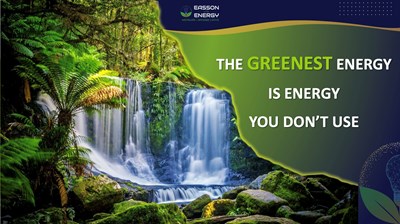The Sustainable Hotel: Turning Green Practices into Gold
Bangkok: Monday 18 November 2024

In an era where eco-consciousness shapes consumer choices, hotels embracing sustainability are reaping benefits far beyond environmental goodwill. They are unlocking new revenue streams, redefining guest experiences, and crafting compelling marketing narratives that attract and retain guests. Let’s explore how sustainability serves as a catalyst for commercial success in the hospitality industry and examine practical strategies for hotels to harness its potential.
1. Why Sustainability Matters to Commercial Success
Modern travellers demand more than comfort and luxury—they seek meaningful experiences. With 78% of global travellers prioritizing sustainable stays*, adopting eco-friendly practices is not just ethical; it’s smart business.
Sustainable hotels appeal to:
- Environmentally Conscious Consumers: Travellers want accommodations aligned with their values.
- Corporate Clients: Many organizations now require green certifications for venues to align with their ESG (Environmental, Social, and Governance) goals.
- Cost-Conscious Operators: Energy efficiency and waste reduction lower operational costs, boosting profitability.
These factors make sustainability not just a moral imperative but a financial one.
2. Key Commercial Strategies for Sustainable Hotels
A. Revenue Management: Leveraging Premium Pricing
Eco-friendly features allow hotels to position themselves as premium brands.
- Green Certifications as Value Drivers: Hotels with certifications like LEED or Green Globe often enjoy higher ADR (up to 11% more than non-certified competitors**).
- Customized Eco Packages: Offer packages that include eco-tours, organic meals, or yoga retreats, which resonate with eco-conscious travellers willing to pay a premium.
B. Digital Marketing: Storytelling Through Sustainability
Sustainability can transform a hotel’s marketing narrative, giving campaigns depth and appeal.
- Content Marketing: Create blogs, videos, and social media posts showcasing green initiatives, such as waste reduction programs or partnerships with local communities.
- SEO with Sustainability in Focus: Target keywords like “eco-friendly hotels” or “sustainable stays” to attract organic traffic.
- User-Generated Content (UGC): Encourage guests to share experiences tied to sustainability using hashtags, tagging the hotel for greater visibility.
C. Sales Strategies: Appealing to Niche Markets
Tailored sales approaches can help hotels tap into niche markets, including:
- Corporate Groups: Develop green meeting packages with sustainable catering options and waste-reduction measures.
- Eco-Conscious Couples: Offer “green wedding” packages featuring farm-to-table menus and locally sourced décor.
- Wellness Travelers: Align sustainability with wellness trends, such as retreats that combine eco-living with mindfulness practices.
3. Practical Tactics to Implement Sustainable Practices
A. Energy Efficiency
Energy is a major operational cost for hotels, but sustainable innovations can reduce usage significantly.
- Smart Systems: Use smart thermostats, motion-sensor lighting, and energy management software to optimize consumption.
- Renewable Energy Sources: Install solar panels or purchase renewable energy credits to lower reliance on fossil fuels.
- Energy Benchmarking: Monitor energy consumption using tools like Energy Star to identify savings opportunities.
B. Waste Management
Effective waste reduction strategies appeal to guests and cut costs.
- Eliminate Single-Use Plastics: Replace plastic amenities with biodegradable or reusable options.
- Composting Programs: Convert food waste into compost, which can be used for landscaping or donated to local farms.
- Recycling Stations: Make recycling easy for both staff and guests by clearly labelling bins.
C. Sustainable Sourcing
Ethical and local sourcing not only reduces environmental impact but enhances a hotel’s brand story.
- Farm-to-Table Dining: Partner with local farmers to supply fresh, organic ingredients.
- Eco-Friendly Suppliers: Prioritize vendors offering biodegradable or sustainably made products.
- Support Local Artisans: Sell local crafts in gift shops, creating economic benefits for the community.
D. Water Conservation
Hotels consume vast amounts of water, making conservation a high priority.
- Low-Flow Fixtures: Install low-flow showerheads, faucets, and toilets to reduce usage without compromising guest experience.
- Greywater Systems: Recycle water for landscaping or cleaning purposes.
- Educational Campaigns: Encourage guests to participate by reusing towels or limiting water use.
4. Action Plan for Hotel Commercial Teams
Step 1: Define Goals and Metrics
Set clear objectives to guide sustainability initiatives:
- Increase ADR by 10% by positioning as a green hotel.
- Reduce energy costs by 25% within the first year of implementation.
- Achieve a guest satisfaction score of 90% for eco-initiatives.
Step 2: Cross-Functional Collaboration
Align departments to integrate sustainability seamlessly into operations:
- Sales: Highlight green certifications and eco-packages during client negotiations.
- Marketing: Create campaigns that celebrate green milestones.
- Operations: Implement and monitor sustainable practices.
Step 3: Training and Engagement
Equip staff to embody and promote sustainability:
- Train employees on sustainable practices and how to communicate these to guests.
- Involve staff in brainstorming and implementing green initiatives.
- Recognize and reward sustainability champions within the team.
Step 4: Guest Engagement
Encourage guests to participate in sustainability efforts:
- Offer incentives, such as discounts for skipping housekeeping services.
- Provide eco-tours or workshops on sustainable living.
- Use in-room tablets or QR codes to educate guests on the hotel’s green efforts.

Step 5: Monitor and Report Progress
Track results to demonstrate impact and refine strategies:
- Measure KPIs, such as energy usage, water savings, and waste reduction.
- Share progress in annual sustainability reports.
- Use positive results to attract investors, clients, and partners.
5. Overcoming Challenges in Sustainability
Despite the benefits, hotels may face barriers, including:
- Initial Costs: Sustainable investments can be expensive upfront. To mitigate, seek government subsidies, grants, or green financing options.
- Resistance to Change: Staff and guests may be reluctant to adopt new practices. Clear communication and education are key to overcoming this.
- Measuring ROI: While some benefits, like cost savings, are immediate, others, such as brand loyalty, take time to materialize.
6. Real-Life Examples of Sustainability in Action
Case Study 1: Known for its eco-luxury approach, Six Senses has implemented sustainability across all operations. From banning single-use plastics to operating organic farms on-site, the brand offers experiences rooted in sustainability. The result? High guest loyalty and strong ADR performance.
Case Study 2: Proximity Hotel in Greensboro, North Carolina, is an excellent example. As the first hotel in the United States to achieve LEED Platinum certification, it showcases how innovative design, and operations can significantly reduce environmental impact while enhancing guest appeal.
The Proximity Hotel integrates over 70 sustainable practices, including using 39.2% less energy than a standard hotel and relying heavily on natural light and locally sourced materials for construction. Its rooftop solar panels provide substantial energy savings, and the property offers complimentary bicycles for guests to explore nearby greenways, aligning with its eco-friendly ethos.
Case Study 3: The Datai Langkawi in Malaysia, which operates amidst a 10-million-year-old rainforest. This luxury resort has implemented a "Datai Pledge" that includes a Nature Centre for guest education and naturalist-led treks to promote environmental awareness. The Datai also collaborates with conservation organizations to protect marine mammals and hornbills, combining luxury with a robust commitment to ecological sustainability.

Easson Energy exemplifies how integrating advanced energy management solutions can support sustainable hospitality operations. With technologies like Eniscope, Easson Energy enables businesses to reduce energy waste, achieve efficiency targets, and streamline energy management through accessible dashboards. These innovations align with the hospitality sector's need for measurable, scalable sustainability practices that also enhance profitability. (courtesy: Gary Canon, Easson Energy)
7. The Future of Sustainability in Hospitality
Sustainability in hospitality is not a trend; it’s a paradigm shift. Future innovations could include:
- Smart Ecosystems: Fully integrated systems to manage energy, waste, and water.
- Carbon-Neutral Stays: Entirely offsetting a guest’s carbon footprint during their stay.
- Regenerative Tourism: Beyond minimizing harm, hotels can actively restore local environments.
Sustainable practices are not just about preserving the environment—they’re about preserving and enhancing the profitability of hospitality businesses. Hotels can drive revenue, boost brand value, and create unforgettable guest experiences by aligning eco-initiatives with commercial strategies. The path to sustainability is not just a journey for the planet; it’s a journey toward long-term commercial success.
*Booking.com Sustainable Travel Report 2024
**Cornell University Center for Hospitality Research
***Energy Star Program - U.S. Department of Energy
****WTTC Global Trends Report 2024
Author: Nazmus Shaine Sakib
#SustainableTourism #RevenueGrowth #EcoHospitality #HotelMarketing #TravelTrends #eassonenergy








